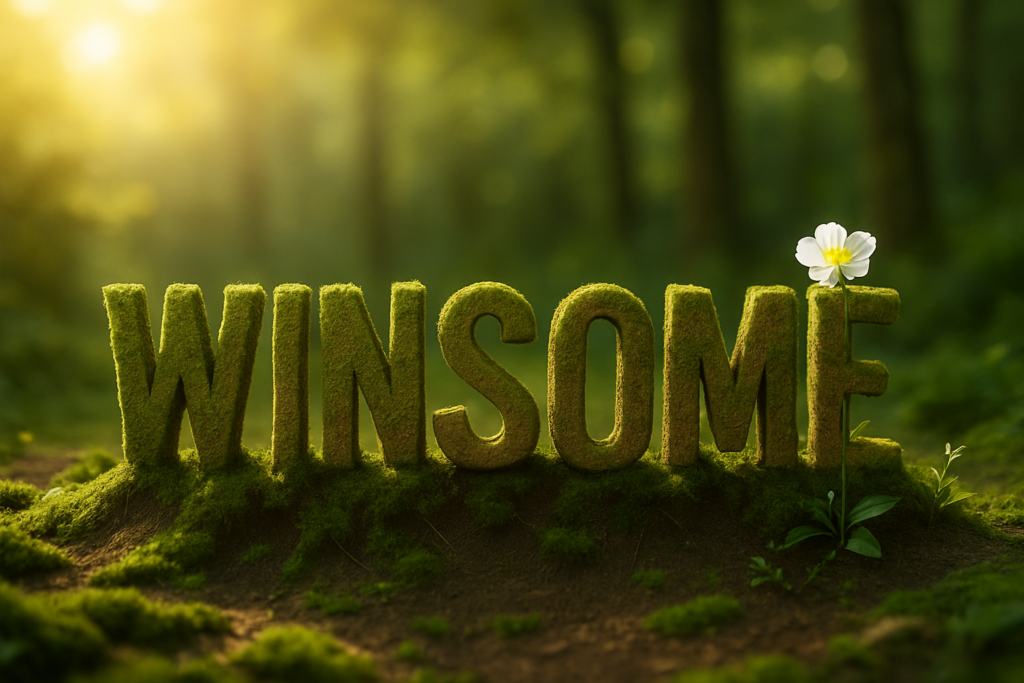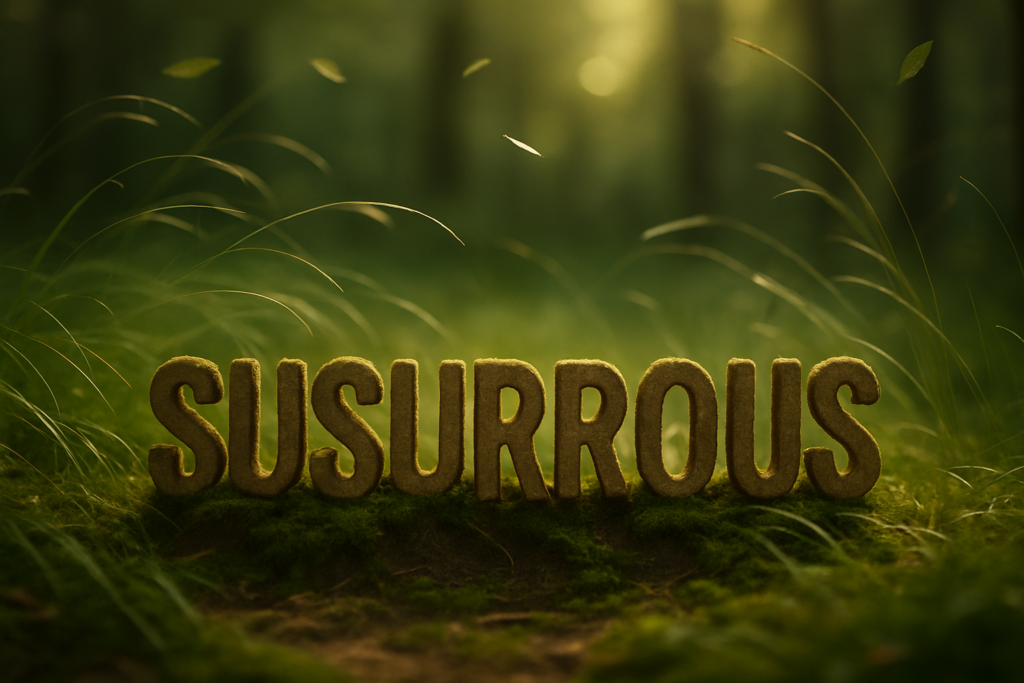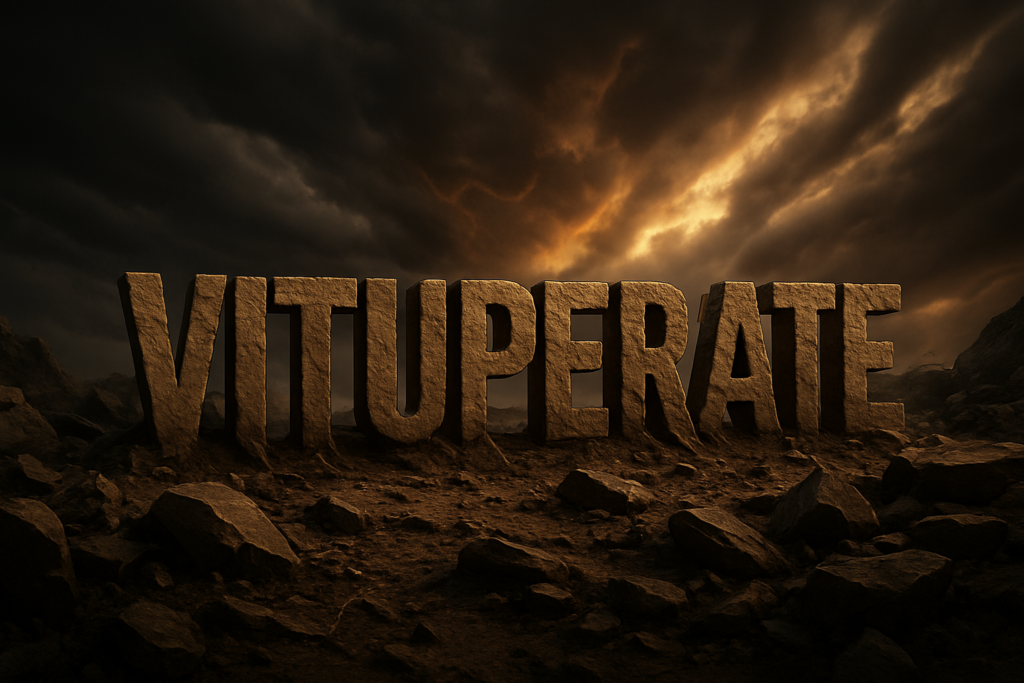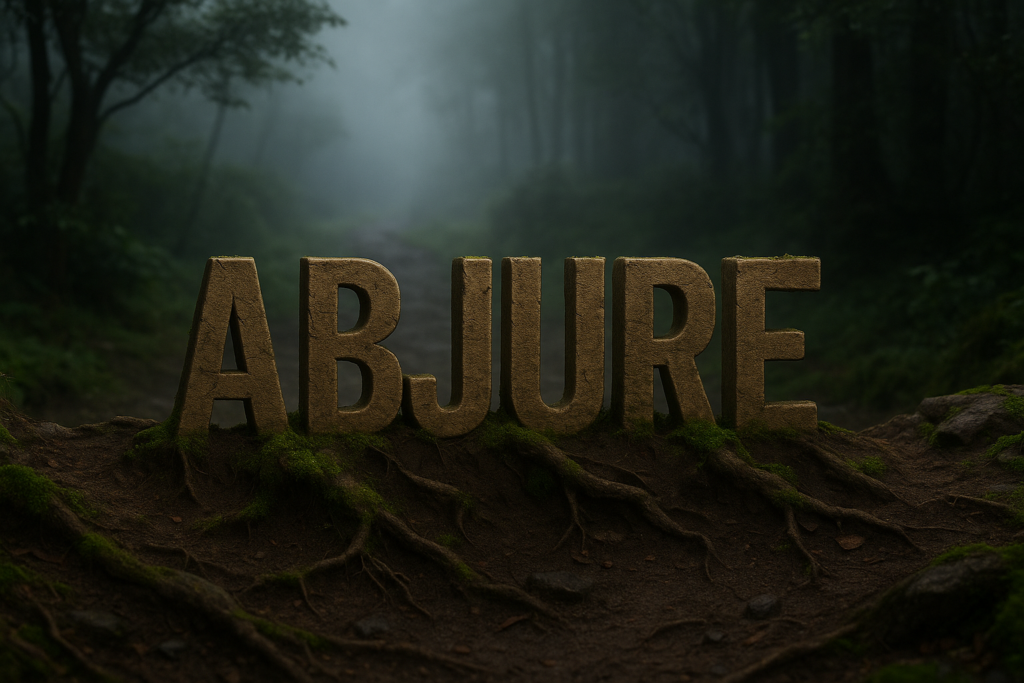Tacit

Today's Word Tacit TASS-it Definition (adjective) Understood or implied without being stated; unspoken but recognized. Example There was a tacit agreement among the siblings not to bring up the topic during dinner. Word Origin From Latin tacitus, meaning “silent” or “unspoken.” Fun Fact Tacit communication is one of the most powerful forms of human connection. A nod, a glance, a shared pause—all can signal understanding without a word. In law and ethics, tacit consent refers to approval inferred from actions rather than explicit statements. The word captures the subtlety of meaning that lives between the lines, where silence often speaks loudest.
Rancor

Today's Word Rancer RANG-ker Definition (noun) Deep, persistent bitterness or resentment. Example Years after their falling-out, a quiet rancor still lingered between them. Word Origin From Latin rancere, meaning “to stink” or “be rotten,” echoing the idea of bitterness that festers over time. Fun Fact Unlike anger, which burns hot and fast, rancor is slow, cold, and enduring. Authors often use it to describe feuds that span generations—think of the Hatfields and McCoys—or tensions that simmer beneath polite conversation. In psychology, rancor is linked to rumination: resentment that grows stronger the more it is revisited, like a wound that never fully closes.
Extant

Today's Word Extant EK-stant (or EK-stənt) Definition (adjective) Still in existence; surviving from the past. Example Despite centuries of conflict, several extant manuscripts from the era are still preserved in the library’s archives. Word Origin From Latin exstare, meaning “to stand out” or “to exist.” Fun Fact Extant is often used when talking about ancient artifacts, fossils, rare documents, or species on the edge of disappearance. It doesn’t mean “abundant”—it simply means it still exists, often against the odds. Scholars treasure extant texts because they offer rare windows into civilizations long gone, while biologists track extant species to protect what remains of Earth’s biodiversity.
Winsome

Today's Word Winsome WIN-sum Definition (adjective) Attractive or appealing in a sweet, innocent, or endearing way. Example Her winsome smile put everyone at ease the moment she walked into the room. Word Origin From Old English wynn, meaning “joy” or “delight.” Fun Fact What makes someone winsome isn’t glamour or sophistication—it’s warmth. Historically, the word described a gentle, genuine charm tied to childlike sincerity or kindness. In literature, winsome characters are the ones who brighten a scene simply by being in it, offering a kind of soft charisma that feels authentic rather than flashy.
Harangue

Today's Word Harangue huh-RANG Definition (noun/verb) A long, forceful, and aggressive speech. / To lecture someone in an intense, critical, or ranting manner. Example The coach launched into a fiery harangue, chastising the team for their lack of effort. Word Origin From Middle French harangue meaning “public address,” rooted in assembly or gathering spaces where long speeches were delivered. Fun Fact Historically, a harangue wasn’t always negative—it simply meant a formal, extended address. But over time, the word absorbed the tone of speeches that were more fiery than inspiring. Today, being harangued feels like being verbally cornered. Politicians, coaches, and impassioned activists are all famous for their harangues—whether motivating or maddening.
Susurrous

Today's Word Susurrous soo-SUR-us Definition (adjective) Characterized by soft, whispering, or rustling sounds. Example The susurrous murmur of wind through the leaves made the forest feel alive yet utterly peaceful. Word Origin From Latin susurrare — “to whisper.” Fun Fact Writers use susurrous to evoke atmosphere—especially scenes filled with gentle natural sound. In poetry, it often describes leaves, grasses, or water moving softly enough to feel intimate, as though nature is whispering secrets. The word is onomatopoetic, meaning its sound imitates its meaning: the repeated “s” mimics the very hush it describes.
Vituperate

Today's Word Vituperate vye-TOO-puh-rayt Definition (verb) To criticize or speak to someone in a harsh, abusive, or scolding manner. Example Frustrated by the delays, the coach began to vituperate the referees with escalating intensity. Word Origin From Latin vituperare, meaning “to blame” or “to censure.” Fun Fact In older literature, vituperation often appeared in fiery debates, political pamphlets, and courtroom exchanges—anywhere language could become a battlefield. The word implies more than mild criticism; it carries the sting of verbal attack, emotional heat, and even theatrical flair. Shakespeare’s insults are famous partly because they dance right on the edge of vituperation, turning fury into art.
Abjure

Today's Word Abjure ab-JOOR Definition (verb) To solemnly renounce, reject, or give up a belief, claim, or course of action. Example Under growing pressure, the senator publicly abjured her earlier remarks. Word Origin From Latin abjurare — “to deny under oath.” Fun Fact Historically, abjure was a legal term: people might “abjure the realm,” formally swearing to leave a country forever. Today, it appears more often in personal or ideological contexts—public figures abjure statements, celebrities abjure scandals, and authors abjure earlier opinions. The word carries a sense of formality and finality—this isn’t just changing your mind; it’s disowning a stance with clarity and purpose.
Philocalist

Today's Word Philocalist fih-LOH-kuh-list Definition (noun) A person who loves beauty—especially in art, nature, or everyday life. Example As a true philocalist, he collected small moments of beauty wherever he went, from sunlit windows to wildflowers growing through cracks in the sidewalk. Word Origin From Greek philo- (“loving”) + kallos (“beauty”). Fun Fact While the word isn’t widely used in everyday conversation, philocalist appears often in artistic and philosophical circles. The early Christians even had a text called Philocalia, meaning “love of the beautiful,” emphasizing spiritual and aesthetic appreciation. Modern philocalists often express their love of beauty through photography, journaling, or simply noticing what others overlook—tiny details that bring delight, wonder, or calm.
Multifarious

Today's Word Multifarious muhl-tuh-FAIR-ee-us Definition (adjective) Having many varied parts, aspects, or forms. Example The festival featured a multifarious mix of music, art, and food from all over the world. Word Origin From Latin multifarius, meaning “in many places” or “of many kinds,” from multus (“many”). Fun Fact Writers often use multifarious to describe anything bursting with variety—city streets filled with different cultures, ecosystems teeming with species, or personalities with countless layers. The word has a grand, almost kaleidoscopic quality to it, hinting at complexity that’s both overwhelming and beautiful. It’s a favorite in fields like biology and art criticism where diversity isn’t just present—it’s essential.
